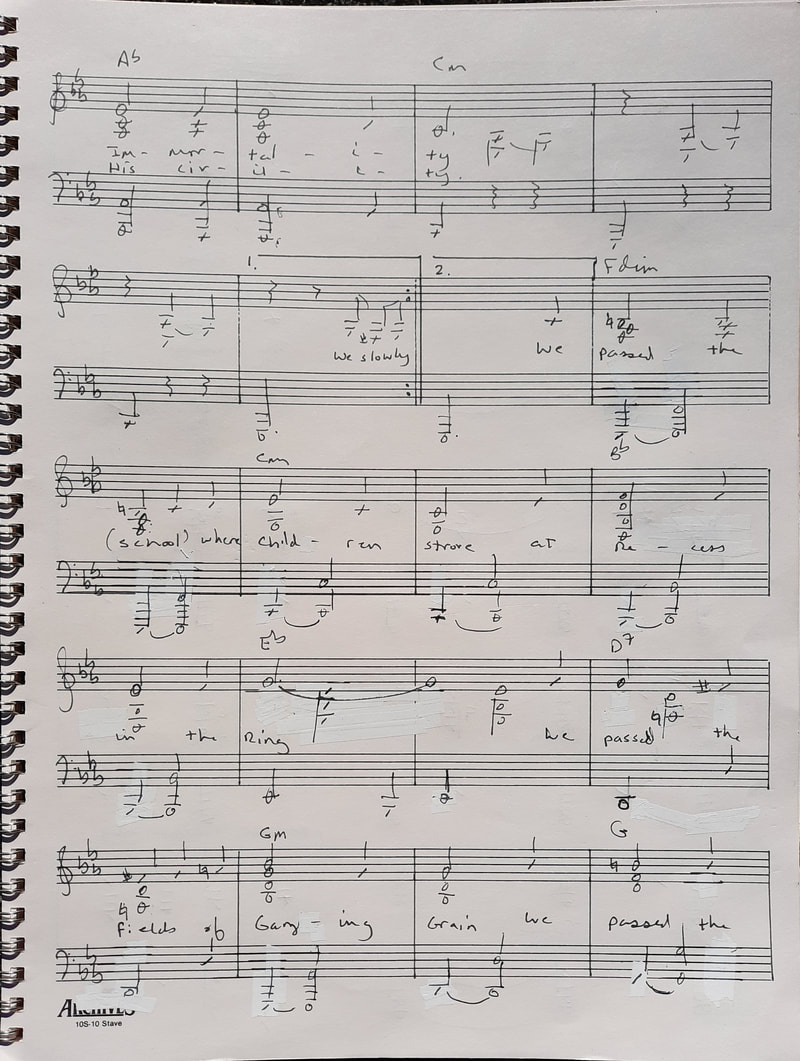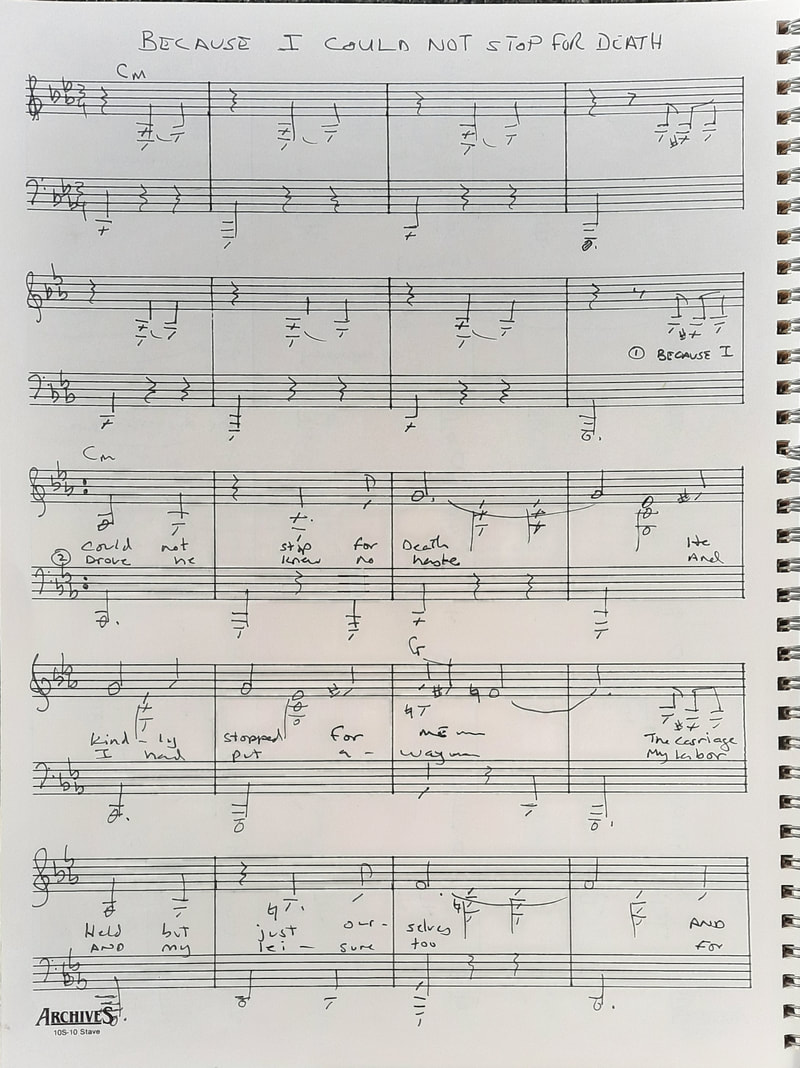If you were to present ten poems on death and grief by Emily Dickinson in a tribute to the poet, which ten poems would you select?
On December 11, 2017, I attended such a presentation at the Folger Shakespeare Library in Washington, DC, when poet and literary critic Sandra Gilbert explored the contemplation of death and grief in Dickinson’s poetry (info/pics HERE).
Which ten poems did she select?
| The first of Gilbert's ten was “There's been a Death, in the Opposite House,” an appropriate choice to begin the evening to underscore the Victorian tradition of the “death watch.” I’ll admit that during the presentation I attempted to multi-task. I was listening to Ms. Gilbert’s discussion and recitations while I was also struggling to jot down a few, quick notes onto my iPhone so I know I missed a few points. For example, in her introduction of “There's been a Death, in the Opposite House,” Gilbert quoted a Dickinson scholar who noted that “funerals were Emily Dickinson’s TV” – but I missed the person’s name. The quote, though, provided a fitting launch to the poem about death and grief from the point of view of one observing the events in the “opposite house.” Much of Gilbert’s discussion focused on the use of the pronouns “it” and “I” in the third stanza of the poem: * Did “it” imply that the speaker did not know the gender of the dearly departed, or did it reflect some Victorian view of death once the individual he or she passed to the opposite side? * Who was the “I” in the poem? Was Emily Dickinson the speaker who had witnessed the proceedings surrounding a death across the way? If so, why does the line end with “when a boy”? True, the word produces an imperfect “rhyme” with “by” in the second line of the stanza – but is Dickinson actually referring to herself as a boy? Later in the evening, Gilbert provided examples of the poet’s occasional tendency to refer to herself in letters as “Uncle Emily” – so maybe in this poem she was a boy. Another detail Gilbert emphasized was the 7th line of the poem, "A Window opens like a Pod," for no other reason than she liked the image – although she admitted she envisioned some sort of science fiction pod. When she read the line, though, I thought of a milkweed pod popping open to expose its interior. | There's been a Death, in the Opposite House, As lately as Today – I know it, by the numb look Such Houses have – alway – The Neighbors rustle in and out – The Doctor – drives away – A Window opens like a Pod – Abrupt – mechanically – Somebody flings a Mattress out – The Children hurry by – They wonder if it died – on that – I used to – when a Boy – The Minister – goes stiffly in – As if the House were His – And He owned all the Mourners – now – And little Boys – besides – And then the Milliner – and the Man Of the Appalling Trade – To take the measure of the House – There'll be that Dark Parade – Of Tassels – and of Coaches – soon – It's easy as a Sign – The Intuition of the News – In just a Country Town – |
“What should one do with at a dash?” mused Gilbert. “Pause and take a breath? Gasp in awe? Stare at the ceiling? Who knows,” she chuckled, “but they are an integral part of each poem.”
Take another look at "There's been a Death, in the Opposite House":
* As usual in Dickinson's poetry, there is irregular use of capitalization and punctuation.
* There are thirty-plus dashes.
* She said, "alway" instead of "always."
* What do you make of the "rhyme scheme" of the second and fourth lines of each stanza?
* Why is the fourth line of the fifth stanza ("There'll be that Dark Parade") separated from the other three lines?
Gilbert referred to another Dickinson scholar -- and again I missed the name -- who said that it's always exciting to put "every syllable (of Dickinson's) under the microscope," for some new meaning manifests itself with every fresh reading of a poem.
As a matter of fact, Gilbert mentioned that to prepare for the evening's event, she purchased a new/clean (i.e., not marked up) edition of Dickinson's poetry to re-read the poems.
"As I read the poems again," she said, "I felt as if a bomb had exploded in my mind" (certainly reminiscent of Dickinson's own line about poetry: "If I feel physically as if the top of my head were taken off, I know that is poetry").
For now, re-read "There's been a Death, in the Opposite House" (above on the right) to see what new meaning jumps off the page and/or jars your mind. I'll continue with more on Gilbert's program in future posts!


 RSS Feed
RSS Feed
